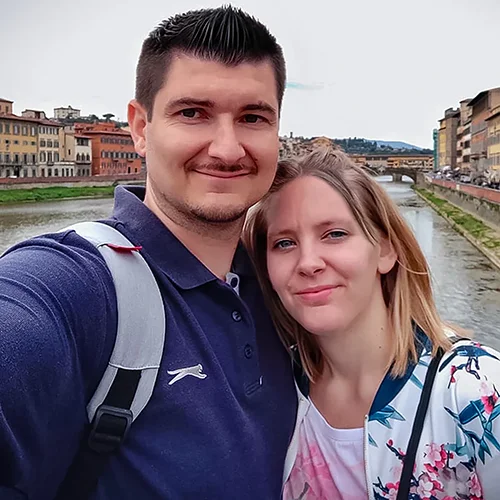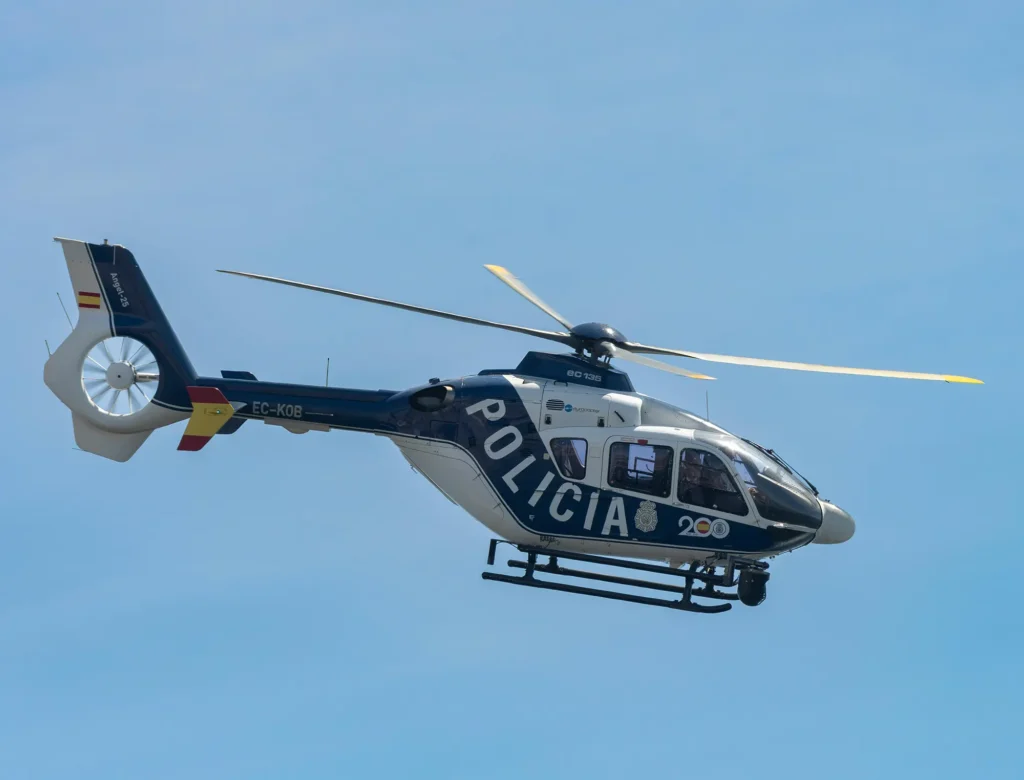Police in Spain: An overview of the different forces
Police in Spain: An overview of the different forces
Police in Spain: An overview of the different forces
Police in Spain: An overview of the different forces
6. September 2024
Feedback: 0
Those wandering through Spain’s cities and streets often encounter police officers. However, this is not due to high crime rates; rather, their presence is meant to serve as a deterrent to potential wrongdoers. But wait—there isn’t just one type of police… Spain is a beautiful country, but it also has a complicated structure, which is reflected in the organization of its police forces. Each region has its own unique characteristics, and the police are no exception. Let’s take a closer look at the different types of law enforcement agencies you can find here.
- Policía Nacional: The All-Rounder in the Cities
- Guardia Civil: The Protectors of the Rural Areas
- Policía Local: The Local Caregivers
- Mossos d’Esquadra: The Proud Guardians of Catalonia
- Ertzaintza: The Basque Police with History
- Policía Foral: Navarra’s Own Force
- Unidad de Policía Adscrita: The Regional Partners of the Nacional
- Cooperation and Coordination
- Conclusion: A Complex but Effective System
Policía Nacional: The All-Rounder in the Cities
The Policía Nacional is one of the most well-known law enforcement agencies in Spain. If you stroll through the streets of Madrid, Barcelona, Valencia, or Seville, you’re likely to see a few officers in dark blue uniforms sporting the distinctive insignia of the Policía Nacional. This group serves as something of an all-rounder in urban areas.
Their tasks are quite diverse: from combating crime and terrorism to overseeing immigration and issuing passports and ID cards. So, if you ever find yourself in Spain needing to renew your passport or ID, you’ll likely have to pay a visit to the Policía Nacional.
What many people might not know is that the Policía Nacional also plays an important role in protecting government buildings. This means that when a tense situation arises in Spain, they are often the first responders. They operate under the Ministry of the Interior, which gives them a central role in Spain’s security system.
Guardia Civil: The Protectors of the Rural Areas
If you find yourself in Spain’s rural areas, you’re more likely to encounter the Guardia Civil. These officers (both guys and gals) wear a distinctive green and white uniform and are responsible for safety and security in rural regions. The Guardia Civil is one of the oldest police forces in Spain, originating in the 19th century. They were initially established to secure the highways and countryside of Spain.
Today, however, their responsibilities are much broader. They not only ensure safety in the countryside but also handle border protection and coastal surveillance. If you’re near the Spanish coast and see a green-and-white boat patrolling, it’s likely the Guardia Civil keeping an eye out.
What truly sets the Guardia Civil apart is their dual role. They are not just a police force but are also organized militarily. This means that in times of crisis, they can be called upon for both public order and military duties. They act as a hybrid between police and military, making them particularly important in Spain.
Policía Local: The Local Caregivers
Now let’s turn to another important police group: the Policía Local. You can find this force in nearly every city and town in Spain. As the name suggests, this is local police funded and managed by municipal governments.
The Policía Local acts as the local caregiver. Their main duties often revolve around daily operations and maintaining public order. This means they frequently patrol traffic to ensure everything runs smoothly. They handle parking violations, traffic regulations, and ensure safety during events.
But that’s not all. The Policía Local also plays a crucial role in crime prevention and tackling minor offenses. So, if something happens in your neighborhood, they’re the first to respond. In many cases, they work closely with national police forces to ensure that community life remains safe and orderly.
Mossos d’Esquadra: The Proud Guardians of Catalonia
Spain wouldn’t be Spain without its regions having their own police forces. A prime example is the Mossos d’Esquadra in Catalonia. This police force is a true symbol of pride for the Catalans and plays an essential role in the autonomous region.
The Mossos d’Esquadra have many of the same responsibilities as the Policía Nacional, but they operate exclusively within Catalonia. They handle crime fighting, terrorism, traffic controls, and the protection of public order in the region. In Catalonia, they have a very strong presence and take on many responsibilities that in other regions are managed by the Policía Nacional or the Guardia Civil.
In recent years, the Mossos d’Esquadra have gained international attention, particularly during the political tensions between the Catalan government and the Spanish central government. Their role in this region makes them one of the most well-known and simultaneously controversial police forces in Spain.
Ertzaintza: The Basque Police with History
In addition to the Mossos d’Esquadra, there is another regional police force that plays an important role in Spain: the Ertzaintza in the Basque Country. This police force has a long and tumultuous history and is deeply rooted in Basque culture.
The Ertzaintza carries out similar duties in their region as the Mossos d’Esquadra do in Catalonia. They are responsible for maintaining public order, combating crime, and monitoring traffic in the Basque Country. They often work closely with national police forces to ensure the safety of the Basque Country.
In recent decades, the Ertzaintza also played a significant role in the fight against the Basque terrorist organization ETA. However, today they focus more on general policing tasks and are an integral part of daily life in the Basque Country.
Policía Foral: Navarra’s Own Force
In addition to Catalonia and the Basque Country, Navarra has its own police: the Policía Foral. This regional police force has responsibilities similar to those of the Mossos d’Esquadra and the Ertzaintza, but its jurisdiction is limited to the autonomous region of Navarra.
The Policía Foral is responsible for maintaining public order, traffic monitoring, and crime prevention in Navarra. In many cases, they collaborate with national police forces to conduct larger investigations and ensure safety in the region.
Although the Policía Foral is less well-known compared to the Mossos d’Esquadra and the Ertzaintza, it still plays an important role in the region and is a vital part of the security apparatus in Navarra.
Unidad de Policía Adscrita: The Regional Partners of the Nacional
Another interesting phenomenon in Spain is the Unidad de Policía Adscrita. This police unit is a special division of the Policía Nacional, which collaborates closely with autonomous communities. They essentially serve as regional partners of the national police and assist regional governments in fulfilling their duties.
The Unidad de Policía Adscrita carries out tasks specified by the autonomous communities. Often, these tasks are specific to the region, such as protecting regional institutions, enforcing environmental regulations, or overseeing certain local laws.
An example is Andalusia, where the Unidad de Policía Adscrita is active in various areas to support the regional government. Although this unit is part of the national police, it often operates independently and tailors its work to meet the needs of the respective autonomous community.
Cooperation and Coordination
An important aspect of Spain’s police forces is their collaboration. Since Spain has both national and regional police forces, coordination between these units is crucial. In many cases, the various police forces work closely together to ensure the country’s safety.
This means that national and regional police forces often conduct joint operations, especially during major events or crises. This cooperation is a fundamental part of the Spanish security system and ensures that the different police forces can operate efficiently.
Conclusion: A Complex but Effective System
Spain has a complex system of police forces that spans national, regional, and local levels. Each of these police forces has its own specific tasks and responsibilities, but they all work together to ensure safety in the country. Whether you’re navigating urban areas, exploring rural regions, or living in one of the autonomous communities, the Spanish police forces are there to protect you.
As diverse as Spain itself is, so is its police force. Each type plays an important role, and together they create a security network that spans the entire country. It may sometimes seem complicated, but ultimately, this diversity ensures that each region and specific situation receives the appropriate support and necessary protection. This decentralized and specialized approach makes the Spanish police system an effective model that considers both the needs of the population and the unique challenges of the country.
We hope these tips help you navigate your expat life even better! Do you have any personal experiences or additional advice? Feel free to leave us a comment! We look forward to hearing from you and accompanying you on your expat adventure. Share this post with others who might benefit from the tips, and stay tuned for more insights and inspiration from life as an expat.
Your Steffi & Marius

Wir sind zwei deutsche Auswanderer und auf emigres-life nehmen wir Dich mit auf unsere Reise in ein neues Leben.
In unserem Projekt schwingt das Pendel meist in Richtung stressig oder chaotisch und weniger in Richtung tiefenentspannt.
Wenn du also wissen willst, in welches Fettnäpfchen wir als nächstes treten oder welche Hürden vor uns liegen und wie wir sie überwinden, dann bleib dran.
Nächster Blogpost
Sommerurlaub in Spanien: Wo du Urlaub machen solltest
Vorhergehender Blogpost
Polizei in Spanien: Ein Überblick über die verschiedenen Kräfte


 Pin it!
Pin it!

